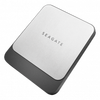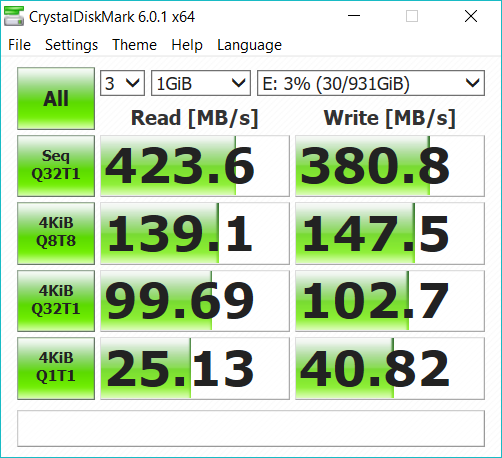SSD Performance Crystal DiskMark
SSD Performance Crystal DiskMark
A longtime favorite benchmark of... well, practically anybody in the PC space, CDM has changed a little of late. Now, the test focuses more on random read/write performance at a wider variety of pre-determined queue/thread depths. We will be leaving these as default, for the record. The old version of the software was quite different, but produced very consistent results, hence why it is a favorite. Again, the CDM suite of tests isn't especially kind to the Seagate drive. We saw 423 MB/s on the sequential read test (generally speaking the kindest by far to manufacturer's claims), and just under 380 MB/s on the write. When we started adding some randomness into the mix, drive performance naturally took a hit, but this is expected.
The Seagate product still gets haunted when we go apples to apples with the old version of CDM, which I was disappointed by. Some would fairly question whether such a difference in performance would be notable in the real world, and that is a question I am not really in a position to answer. With that said, having tried both versions of the software as well as the ATTO benchmark (thus far), it would appear that - generally speaking - the Seagate SSD is around 20% slower in all facets than the T5. Beyond being a limitation of the TLC memory, I also suspect a bandwidth issue along the older Gen 1 standard.
Samsung T5 - portable USB 3.1 Gen 2 SSD unit 500GB
Samsung 850 EVO 500GB SSD




